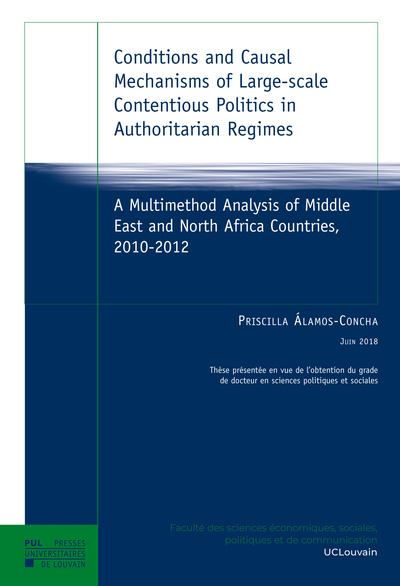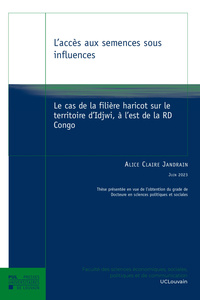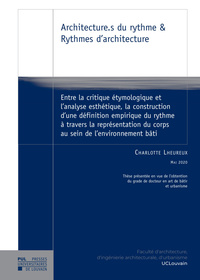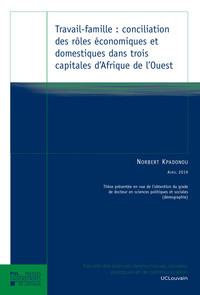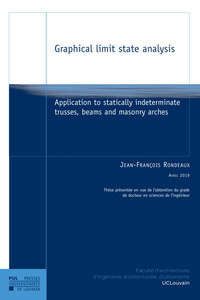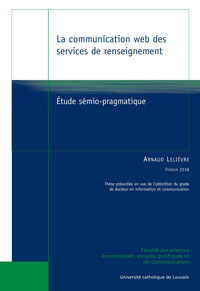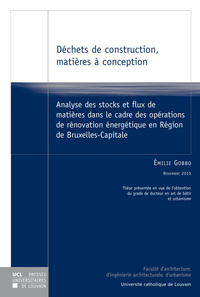Nous utilisons des cookies pour améliorer votre expérience. Pour nous conformer à la nouvelle directive sur la vie privée, nous devons demander votre consentement à l’utilisation de ces cookies. En savoir plus.
Conditions and Causal Mechanisms of Large-scale Contentious Politics in Authoritarian Regimes
Pu Louvain - EAN : 9782875587718
Édition papier
EAN : 9782875587718
Paru le : 13 juil. 2019
39,00 €
36,97 €
Disponible
Pour connaître votre prix et commander, identifiez-vous
Notre engagement qualité
-
 Livraison gratuite
Livraison gratuite
en France sans minimum
de commande -
 Manquants maintenus
Manquants maintenus
en commande
automatiquement -
 Un interlocuteur
Un interlocuteur
unique pour toutes
vos commandes -
 Toutes les licences
Toutes les licences
numériques du marché
au tarif éditeur -
 Assistance téléphonique
Assistance téléphonique
personalisée sur le
numérique -
 Service client
Service client
Du Lundi au vendredi
de 9h à 18h
- EAN13 : 9782875587718
- Collection : THESES DE LA FA
- Editeur : Pu Louvain
- Date Parution : 13 juil. 2019
- Disponibilite : Disponible
- Barème de remise : NS
- Nombre de pages : 458
- Format : H:160 mm L:240 mm
- Poids : 723gr
- Interdit de retour : Retour interdit
- Résumé : Why does large-scale contentious politics successfully arise in some MENA countries while in others it does not? And what are the causal mechanisms that facilitate the success of large-scale contentious politics in the typical case of Tunisia? This research introduces the concept of 'success of large-scale contentious politics'... Over the 2011 and 2012 period, Tunisia, Egypt, Libya and Yemen experienced the success of large-scale contentious politics, i.e. a fit between contentious politics and the displacement of incumbents. However, other authoritarian regimes in the MENA region, even if they experienced some form of contentious politics, these did not become successfully 'large-scale'. The empirical evidence leads us to a two-part puzzle: Why does large-scale contentious politics successfully arise in some MENA countries while in others it does not? And what are the causal mechanisms that facilitate the success of large-scale contentious politics in the typical case of Tunisia? This research introduces the concept of ‘success of large-scale contentious politics’ and applies a two-level model to compare 14 MENA countries by using a revisited Two-Step Fuzzy-set Qualitative Comparative Analysis. As findings, a core element is identified: the context within which the success of large-scale contentious politics takes place – a non-hereditary regime – and the conjunctural role of four conditions within this context: cohesive mobilization, military defection behavior, absence of foreign rescue and low State capacity. Further, in order to understand the process of success of large-scale contentious politics, a theory-testing processtracing technique is performed. Three interconnected causal mechanisms are conceptualized: attribution of similarity, government’s carrot and stick policies of repression and accommodation and social appropriation of mobilizing vehicles, which enable to understand the whole story about how the process of success of large-scale contentious politics takes place in Tunisia. Finally, the evidence found increases our confidence in that such causal mechanisms are present and work as theorized.

